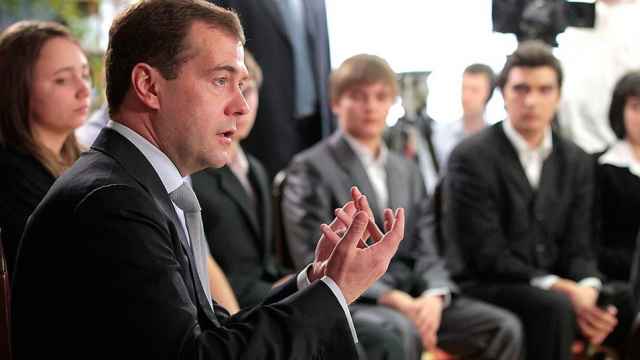Nearly half of Russians say they wouldn't support a switch to a four-day work week over fears that it would reduce their earnings, a new poll has said.
Earlier this month, Prime Minister Dmitry Medvedev said that a shift to a four-day work week is “very likely” to happen as a way to help workers overcome burnout and chronic fatigue. Despite long hours at work, the Russian workforce’s productivity is among the lowest of the world’s major economies.
Forty-eight percent of Russians oppose the idea of a four-day work week, according to a new survey published by the state-run VTsIOM pollster on Monday, while about one-third (29%) say they would have a positive reaction to a shortened work week.
"Russians’ fears are mainly associated with the likely [subsequent] reduction in income, which is critical for pensioners and villagers — the poorest and most vulnerable segments of the population,” Valery Fyodorov, the head of VTsIOM, said. “Supporters of shorter work weeks, on the other hand, expect to use their free time more productively and to improve the balance between their work, leisure and personal life as a result.”
When asked how the transition would affect their earnings, 82 percent of respondents said a reduced working week would lead to lower salaries, while 15 percent said it would have no effect on earnings.
Sixty-seven percent of Russians also said that shortening the work week would lead to lower productivity, while 29% said it would improve productivity.
Residents of Moscow and St. Petersburg and adults aged 25-34 were most likely to support a four-day work week, the poll said.
VTsIOM conducted its survey among 1,600 Russians aged 18 years and older across the country on June 13.
A Message from The Moscow Times:
Dear readers,
We are facing unprecedented challenges. Russia's Prosecutor General's Office has designated The Moscow Times as an "undesirable" organization, criminalizing our work and putting our staff at risk of prosecution. This follows our earlier unjust labeling as a "foreign agent."
These actions are direct attempts to silence independent journalism in Russia. The authorities claim our work "discredits the decisions of the Russian leadership." We see things differently: we strive to provide accurate, unbiased reporting on Russia.
We, the journalists of The Moscow Times, refuse to be silenced. But to continue our work, we need your help.
Your support, no matter how small, makes a world of difference. If you can, please support us monthly starting from just $2. It's quick to set up, and every contribution makes a significant impact.
By supporting The Moscow Times, you're defending open, independent journalism in the face of repression. Thank you for standing with us.
Remind me later.






